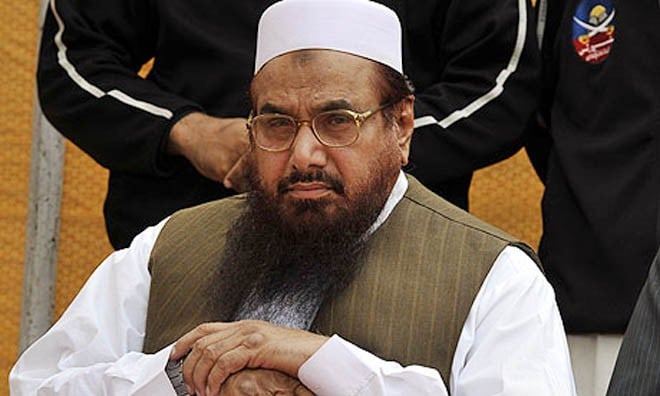
Does the JuD need more space in the political sphere?

The Jamaat-ud-Dawa (JuD) that has been under the scanner of the UN and global powers for its alleged involvement in terrorism, was founded in 1986 by Hafiz Muhammad Saeed. Initially, it had a presence in Punjab but later on its influence spread in other parts of the country.
Saeed, the amir of the Jamaat, was born to a Gujjar family in Sargodha. His family arrived in Pakistan from India after the Partition and lost dozens of members to armed Hindu and Sikh attackers. This is one of the many reasons cited for why he hates Hindus and India.
Secondly, belonging to Ahl-e-Hadees school of thought, he was influenced by the Saudis, and an overall drive at that time to support Afghan jihad.
Saeed was a teacher of Islamiat at the University of Engineering and Technology (UET), Lahore, and inspired many of his students to join the organisation. In the 1980s, he went to Saudi Arabia and met their leadership. He was also patronised by late Gen Ziaul Haq who offered him a slot on the Council of Islamic Ideology (CII).
Soon after the formation of JuD, its headquarters were set up in Muridke in the outskirts of Lahore over a vast track of land, and was named Markaz Dawa Wal Irshad. The Markaz had facilities, including schools, a madrassa, medical centres, horse-riding training centre, swimming pool, and more. Though the JuD cadre claims these facilities were for the overall personality development of deserving students, it is alleged that it was mainly a training centre for mujahideen for Afghan jihad and fighting against the Indian army in Kashmir.
Read also: Editorial
The militant group, Lashkar-e-Taiba (LeT), founded in 1990, is supposedly run by the JuD, something the latter denies. India has held LeT responsible for attacks on the Indian army in Kashmir, the Indian Lok Sabha, Taj Hotel, and other public places in Mumbai. In 2008, it even announced its plan to carry out a surgical strike on the JuD Markaz in Muridke. The Pakistan army immediately made a counter announcement, saying any surgical strike on Pakistani land would be taken as a full-fledged war. The Markaz is still operational but the government has appointed an administrator (a government officer) to monitor all the activities.
Since the Mumbai attacks in 2008 that were linked to the JuD, the organisation claims to have distanced itself from any armed group or militant wing. It claims it is only working for the welfare of the people under the banner of its sister organisation, Falah-e-Insaniyat Foundation (FIF). FIF’s ambulances, trucks, volunteers, etc, can be seen all across the country.
Hafiz Saeed is under house arrest since Jan 31, 2017, apparently due to pressure from the US and, to an extent, China as well.
Yahya Mujahid, spokesman JuD, terms this detention by the government just a means to appease the US, and hopes the court that is hearing the case will declare it illegal. He says the superior courts have clearly declared that the JuD and FIF are purely welfare organisations and have had no link ever with the banned LeT. "JuD and LeT were two different organisations altogether."
He scoffs at the idea of mainstreaming militant organisations. "JuD is already mainstreamed, and performs its functions according to the laws of the land and the provisions of the constitution of Pakistan," he adds.
However, a major blow to the JuD came in October last when Rana Muhammad Afzal, a PML-N MNA from Sheikhupura came down hard on the JuD and Hafiz Saeed, and urged action against him. He complained that Pakistan was facing isolation due to him and other non-state actors indulging in unwanted activities. His statement was used by India for building a case against him.